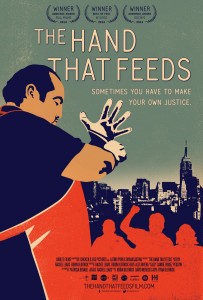Sitting in a cinema, watching a documentary about underdogs winning a fight against corporations, I couldn’t help but think of all those that didn’t have the (few, but still crucial) resources that were offered to them (largely, if not all, coming from white people willing to help). I couldn’t help but think that people of color cannot win unless we have some white people that are well-intentioned. In America, brown and black people cannot fight for rights and get them, unless they have access to the resources that are made abundantly available to white people. This documentary can possibly create an image that “if you fight hard enough, you will get what you want”, creates an false sense of meritocracy – which is simply not true in America. Without the help of white people willing to help, the system wouldn’t of cared about what undocumented, people of color had to say about their working conditions. This documentary has the risk of turning into a single underdog story.
Overall, the film was great and shines light on the working conditions of undocumented workers. It is important to create laws and policies to protect ALL people regardless of immigration status.

